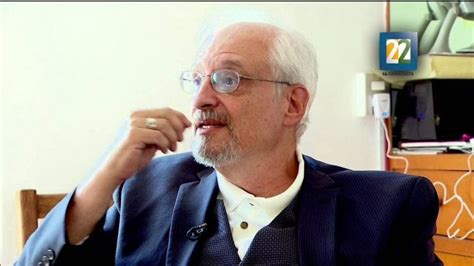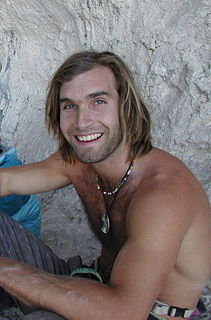A Quote by Carl Jung
The term "self" seems a suitable one for the unconscious substrate whose actual exponent in consciousness is the ego. The ego stands to the self as the moved to the mover, or as object to subject, because the determining factors that radiate outward from the self surround the ego on all sides and are therefore supraordinate to it. The self, like the unconscious, as an a priori existent out of which the ego evolves. It is, so to speak, an unconscious prefiguration of the ego. It is not I who create myself; rather, I happen to myself.
Related Quotes
Then ego goes on growing, because the society needs you as an ego, not as a Self. The Self is irrelevant for the society; your periphery is meaningful. And there are many problems. The ego can be taught and the ego can be made docile and the ego can be forced to be obedient. The ego can be made to adjust, but not the Self. The Self cannot be taught, the Self cannot be forced. The Self is intrinsically rebellious, individual. It cannot be made a part of society.
The ego isn't wrong; it's just unconscious. When you observe the ego in yourself, you are beginning to go beyond it. Don't take the ego too seriously. When you detect egoic behavior in yourself, smile. At times you may even laugh. How could humanity have been taken in by this for so long? Above all, know that the ego isn't personal. It isn't who you are. If you consider the ego to be your personal problem, that's just more ego.
"The ego is created by the rift. When you are fighting, the ego comes in; when you are not fighting, the ego cannot come in. Ego is a tension. If you want the ego, then divide yourself as fully as possible - become two persons. That is what is happening to many people, that is what has happened to whole of humanity. Everybody has become two persons: one voice says "Do this," the other voice says "Don't do that" - then the ego arises. Out of friction ego arises, and ego is very intoxicating; it makes you unconscious. This is the whole mechanism."
The child is born with a Self but not with an ego. The child develops the ego. As he becomes more and more social and related, ego develops. This ego is just on your periphery where you are related with others - just on the boundary of your being. So ego is the periphery of your being, and Self is the center. The child is born with a Self, but unaware. He is a Self, but he is not conscious of the Self.
In Buddhist ideology, the conventional self is that which is constructed in a way by the use of the pronoun, and when you realize there is no absolute ego there, no disconnected one, self, or ego, then that actually strengthens your conventional ego. It does so in the sense that then you realize it's a construction, and you can strengthen it in order to help others, or do whatever you're trying to do, it's not like you no longer know who you are. Then you can organize your behavior by using your ego, as it's now the pronoun.
Central to Jungian psychology is the concept of "individuation," the process whereby a person discovers and evolves his Self, as opposed to his ego. The ego is a persona, a mask created and demanded by everyday social interaction, and, as such, it constitutes the center of our conscious life, our understanding of ourselves through the eyes of others. The Self, on the other hand, is our true center, our awareness of ourselves without outside interference, and it is developed by bringing the conscious and unconscious parts of our minds into harmony.
As Hubert Benoit said, it is not the identification with the ego that is the problem, but the exclusive nature of the identification. When our self-identity expands beyond the ego, into the deeper psychic, then even into the Unborn and One Taste, the ego is simply taken up and subsumed in a grander identity. But the ego itself remains as the functional self in the gross realm, and it might even appropriately be intensified and made more powerful, simply because it is now plugged into the entire Kosmos.
Ego is neither positive nor negative. Those are simply concepts that create more boundaries. Ego is just ego, and the disaster of it all is that you, as a spiritual seeker, have been conditioned to think of the ego as bad, as an enemy, as something to be destroyed. This simply strengthens the ego. In fact, such conclusions arise from the ego itself. Pay no attention to them. Don't go to war with yourself; simply inquire into who you are.































